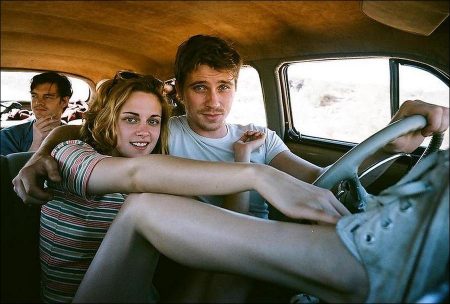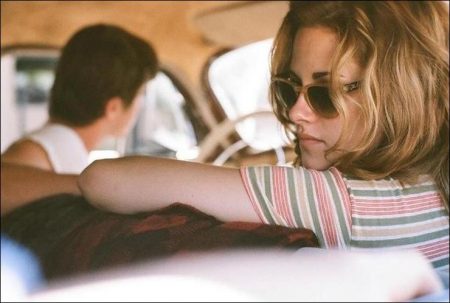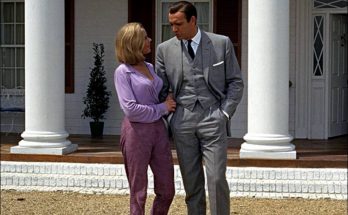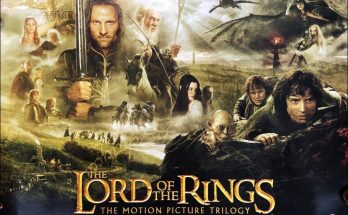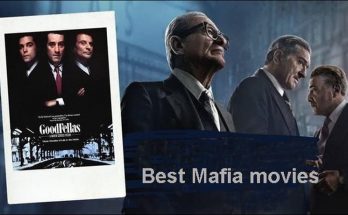On the Road: A Personal Quest for Freedom. Directed by acclaimed filmmaker Walter Salles and based on the iconic novel by Jack Kerouac, On the Road tells the provocative story of Sal Paradise (Sam Riley), a young writer whose life is shaken and ultimately redefined by the arrival of Dean Moriarty (Garrett Hedlund), a free-spirited, fearless, fast talking Westerner and his girl, Marylou (Kristen Stewart).
Traveling cross-country, Sal and Dean venture out on a personal quest for freedom from the conformity and conservatism engulfing them in search of the unknown, themselves, and the pursuit of “it” — the pure essence of experience.
Seeking unchartered terrain and the last American frontier, the duo encounter an eclectic mix of men and women — Bull (Viggo Mortensen), Camille (Kirsten Dunst), Carlo (Tom Sturridge), Jane (Amy Adams), Terry (Alice Braga), Galatea (Elisabeth Moss) — each impacting their journey indelibly.
From Book To Film: The Tale Of An Adaptation
Adaptation Time by Etienne Rouillon
Jack Kerouac wrote to Neal Cassady, “I’ll revolutionize American letters and drink champagne with Hollywood starlets.” He delivered on the first part but was stuck with plain water for the second. Yet, it wasn’t for lack of trying from the outset. With copies of On the Road hot off the press in 1957, Kerouac confidently put pen to paper in a letter (found in 2005) addressed to Marlon Brando. He has a great idea for him: Brando buys the rights to On the Road to make a film. Marlon plays Dean and Jack plays Sal.
Urban Legends
Roman Coppola, head of the American Zoetrope production company with his sister Sofia, has seen a lot of people struggle with it: “Ah yes, the famous letter to Brando! But isn’t that a myth? You managed to get hold of it? It’s just that there are so many myths about On the Road and beat culture. For instance, I heard about a project with Montgomery Clift.
In my opinion, Hollywood was fascinated by the idea of making a movie from the start. The book was very popular there. But there was a catch. Movies are usually built around the classic ‘beginning-middle-end’ plot structure. On the Road is famously absolutely unconventional in this respect. Most of the adaptation projects contemporaneous with Kerouac focused on that and the results have never been satisfying.”
Indeed, Roman admits that he too tried to develop a screenplay of the book with himself slated to direct. In fact, the book and its adaptation to the big screen haunted the Coppola family for decades. “We set to work in 1979,” resumes Roman Coppola. “My father, Francis Ford Coppola, was very interested in the story and bought the movie rights to the book.
In most cases, when it comes to rights in Hollywood, in actual fact, you’re really buying an option. Meaning that you buy exclusive adaptation rights on the project for two or three years. So the longer a project drags on the more you have to pay. I don’t exactly know how it happened, but my father was actually able to buy the book. No business about options. It was his. Otherwise, he would eventually have dropped the project. He always believed that it would make a wonderful film. Everything was just a matter of timing and meetings. And then Walter Salles came along eight years ago.”
Beat It
“Profoundly harmonious,” recalls Rebecca Yeldham, in every possible way — rapturous, amazing, nostalgic, and poetic — when asked to tell us about this summit meeting after five decades of thwarted adaptations. “I knew of MK2 as I am very involved in the promotion of foreign films in the United States.
When we met them, we’d already been working on the project for 6 years. We’d already struggled with the notion of adapting the quintessential American novel as a foreign crew — Walter is Brazilian, I’m Australian, Jose Rivera is Puerto Rican, Eric Gaultier is French and Carlos Conti is Argentine. This led us to seek increased legitimacy on the project, which is why we did all this research, the interviews and the trips. “I don’t think Walter ever wondered: ‘How would Kerouac have shot it?’
On the other hand, I do think he was conscious of another question: ‘Would Kerouac approve of what I’m doing?’ He also knew that it had to be his adaptation, faithful yet creative too. Throughout this eight-year adventure, Walter worked hard to learn all about everyone and everything associated with On the Road and the culture surrounding it. I think the film is the fruit of these efforts and our shared dedication to honor this beloved text. And with respect to Kerouac, I think that we can be confident about how he would have received our movie, given what he wrote in the letter to Marlon Brando, ‘… it’s going to be the beginning of something real great.'”
Related Link: View the Full Production Notes for On the Road
Views: 98
